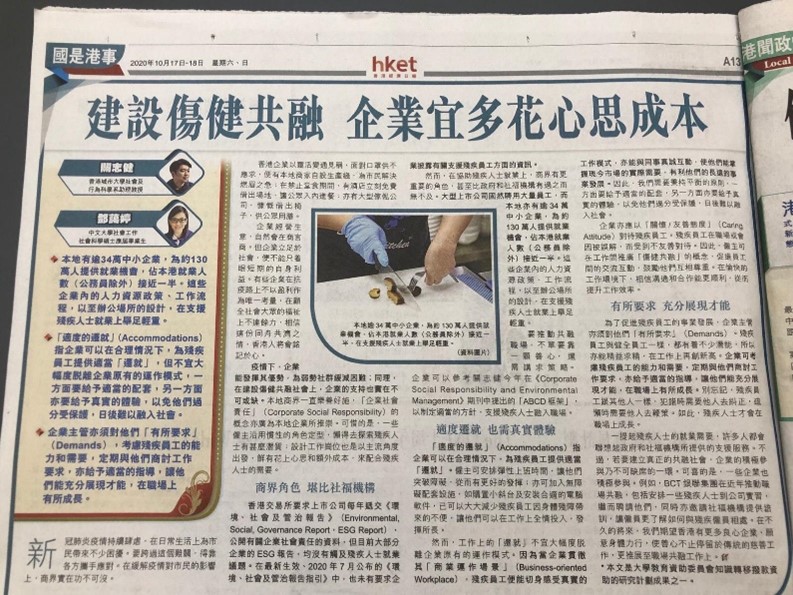People with disabilities (PWDs) have long been disadvantaged in the job market. Poverty and mental health hazards that accompany unemployment further hamper PWDs’ social participation. Social interventions, such as an employment quota system, economic incentives for hiring PWDs, and anti-discrimination legislation, all fail to substantially enhance PWDs’ employability. Vocational rehabilitation (VR) social workers mainly provide employment support to individual PWDs, but enterprises display limited engagement with the employment difficulties of PWDs. This study aims to promote, guided by empirical evidence, a paradigmatic shift in the orienting perspective of VR social work, moving from a ‘charitable employment support’ focus to a new ‘workplace inclusion’ focus, the latter involves collaboration with enterprises to effect changes in organizational culture and practices for fostering social inclusiveness in workplaces for PWDs and other disadvantaged groups. Towards this end, the main point of the study is to develop empirically supported mezzo-level social work interventions that are appropriate to the local context. Based on a broad scan of the workplace inclusion literature, the study will draw on Brewer’s (1991) Optimal Distinctiveness Theory to conceptualize social inclusion (Belonging and Uniqueness), Mor Barak’s (2000) practice-based model of the ‘inclusive workplace’ to ground model-building of mezzo-level social work intervention, Accenture’s (2018) 4E’s framework (Employ, Enable, Engage, Empower) for building an inclusive workplace, and extant measures of inclusion-exclusion and diversity (Mor Barak & Cherin, 1998; Taylor, 2011; Hedman, 2016) for assessing workplace inclusion-exclusion. The proposed study is generative in furthering theory in the workplace inclusion literature. The research product will extend the focus of VR social work from employment support for PWDs to cultivating an inclusive culture in workplaces that a social model of disability will have prescribed. The scope of research is broad and necessitates employing a mixed-methods design comprising four methodological components progressing through three phases: I) survey studies of employers / HR practitioners. II) informant interviews covering (a) employers / HR practitioners (n=30); (b) PWDs presently holding a job (n=15); and (c) their workmates and supervisors (n=15). Some of these interviews are embedded in three mini-ethnographic case studies (the third component). III) three practitioner inquiry groups for VR social workers to formulate mezzo-level interventions to foster workplace inclusion for PWDs, referring to the research data of Phases I and II; and two cooperative inquiry groups for conducting cross-profession dialogues between HR practitioners and VR social workers on a potential for collaboration to foster workplace inclusion.
Social Work and Counselling
Exploring the Roles of Enterprises in Promoting Workplace Inclusion for People with Disabilities
Starting Date
Expected Completion Date
Principal Investigator
Dr. KWAN Chi Kin
